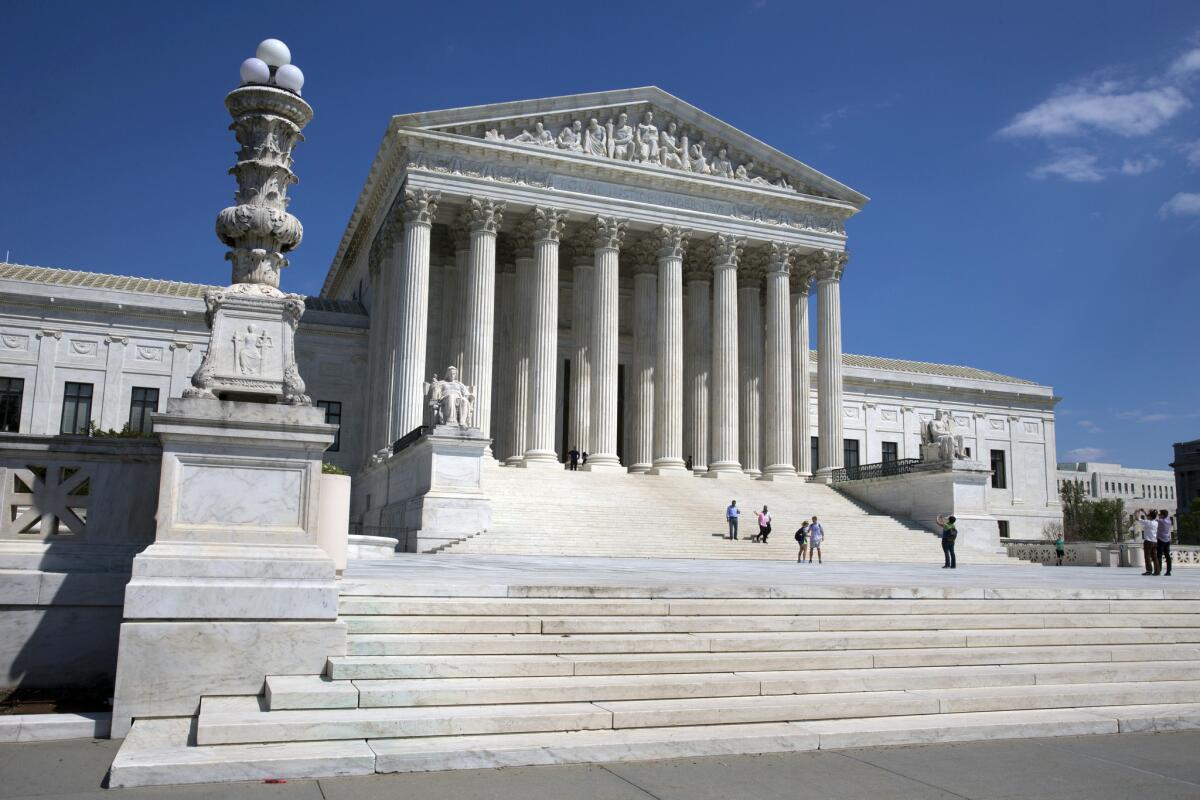The Supreme Court saddles up for an attack on retiree benefits

- Share via
In an era in which corporations have been trying every possible stratagem to cut employee benefits (see our look at the Obamacare employer mandate earlier today), a new threat to retirement benefits has just arisen.
The source of the threat is the Supreme Court, which earlier this month agreed to rule on when or whether employers can unilaterally end retiree healthcare benefits, even when they’re negotiated as part of a union contract.
As Nicholas Bagley of the University of Michigan law school observes, federal law prohibits the unilateral reduction of retirement benefits retroactively. (The law is the Employee Retirement Income Security of 1974, or ERISA, without which corporations would systematically have been impoverishing their own retirees.)
ERISA doesn’t cover health benefits, however. As the Labor Department warns, “when employers do offer retiree health benefits, nothing in federal law prevents them from cutting or eliminating those benefits--unless they have made a specific promise to maintain the benefits.”
The question raised in M&G Polymers v. Tackett is how specific that promise must be.
M&G, a West Virginia chemical company, started demanding a contribution toward health plan premiums from all its retirees in 2007. A group of retirees led by one Hobart Freel Tackett sued, pointing out that the union contracts signed by the plant’s predecessor owners, Goodyear and Shell, long before M&G took over in 2000, guaranteed a “full company contribution” for healthcare for its pensioners. (A contract signed by the United Steel Workers in 2005 allowed for shared premium contributions for future retirees, but the company tried to impose them even on the already-retired.)
As the company states, federal appellate courts are “all over the lot” in ruling on the issue. The Sixth Circuit, which ruled on the case, ruled that where the contract is silent on the duration of the benefit, the assumption must be that it was intended to be permanent. The Third Circuit (Pennsylvania, New Jersey, Delaware) requires an explicit provision that retiree health benefits are intended to last beyond the end of the collective bargaining agreement. The Second (New York, Vermont, Connecticut) and Seventh (Indiana, Illinois, Wisconsin) look for at least some language implying that the expectation is for a permanent benefit. The Supreme Court has now accepted the chore of crafting a single rule.
It’s proper to observe that by accepting the case, the court already has dealt the workers a major setback. Their position was that this wasn’t a legal dispute, but a factual one--and the lower courts had ruled that the company’s witnesses had lied to judges about what presumptions had governed the union negotiations before 2005. Judges in the federal District Court and appellate court had consistently ruled in the workers’ favor.
“If I had to guess, this case won’t go well for retirees, Bagley writes. “Lots of companies would like to cut back on their retiree obligations—especially in the Rust Belt.” The Sixth Circuit has held the line, but it’s in the minority among appeals courts that have ruled on the matter. If the Supreme Court casts its lot with the other circuits, “that could create financial hardship for thousands of retirees and give heartburn to their former unions.”
Oral arguments will take place this year. Watch out for this one. It could be another blow for the average working stiff.
More to Read
Inside the business of entertainment
The Wide Shot brings you news, analysis and insights on everything from streaming wars to production — and what it all means for the future.
You may occasionally receive promotional content from the Los Angeles Times.










